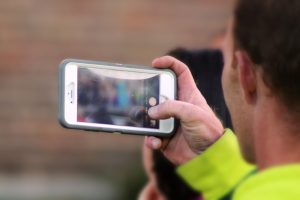In the last decade, the Pew Research Center has closely analyzed the many ways Americans use social media to interact with others and seek information. Researchers discovered that in 2016, almost 8 out of 10 Americans who are online (which is most) use Facebook, 24 percent use Twitter and a third use Pinterest, Instagram and LinkedIn. For instance, most Americans are now getting their news via social media. They are also using it at work, whether in the course of their job, to seek employment or just to take a mental break from the stress of their day. 
While these platforms provide information, entertainment and interactivity, they can also have a profound impact on your personal injury case. This is increasingly true as more Americans are online. We use these sites to document our everyday experiences, so it’s natural for attorneys – on both sides – to closely examine the information available to ascertain whether it can be a benefit or a hindrance to their case. As The American Bar Association pointed out, social media posts, pictures and messages can be compelled into evidence, assuming the requesting attorney can make an argument that the information is:
- Authentic;
- Relevant;
- More probative than prejudicial;
- There is no hearsay problem.
Although social media sites generally won’t cooperate with civil case subpoenas (though they will cooperate with authorities in regard to criminal cases), attorneys will often look closely at whether they can legitimately access information on the account that shows some evidence that contradicts what one party is claiming? That doesn’t mean your private messages will never make it to the courtroom, but it means if there is evidence on your publicly-accessed profile or page that contradicts what you claim, that could be a basis for a defense lawyer to ask for greater access to your account – or visa versa.
Many people don’t have their profiles set to private, and that is usually something we advise universally – whether you’re involved in litigation or not. In civil cases, either party can obtain access to your account (or certain elements of it, at least) if it’s relevant, so long as that information isn’t protected by some form of privilege. Courts in Florida have established that photos and other postings are discoverable in personal injury lawsuits. Further, courts have held that a person who creates a social media account is accepting that their personal information is going to be shared to some extent – regardless of privacy settings.
What that means is the only real way to protect your information from discovery requests in litigation is not to post anything that might be relevant to your case. That might seem easy enough, but it could be more innocuous than you think. For example, some courts have allowed that the number of likes or friends one has on a social media site could be indicative of their general state of contentment (which could in turn undermine claims of pain and suffering). That’s taking it to the extreme, but defense lawyers are going to comb every square inch of information they legally can to find information that will help their case. That could mean a photo of you smiling or it could be a discussion of the accident on social media. Your Lehigh Acres injury attorney can help answer your questions about how you can still engage in social media, but protect your claim.
Call Associates and Bruce L. Scheiner, Attorneys for the Injured, at 1-800-646-1210.
Additional Resources:
How to get social media evidence admitted to court, November 2016, American Bar Association
More Blog Entries:
Restitution Can Provide Additional Compensation for Crash Victims, Nov. 9, 2017, Lehigh Acres Personal Injury Attorney Blog
 Florida Injury Lawyer Blog
Florida Injury Lawyer Blog





